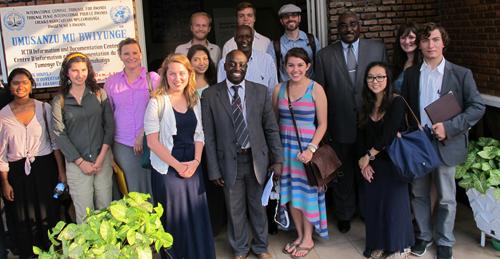
Filter by content type:
Filter by date:
Roza Petrosyan graduated with honors from USC with Bachelor Degrees in history and social psychology, as well as a minor in Russian area studies. She interned at the USC Shoah Foundation for three years and continues to work at the Institute as a researcher. In the fall, Roza will attend USC Gould School of Law with the hopes of becoming a human rights advocate.
I first learned about Helena Horowitz’s life history when I found her testimony as I searched through the archive in IWitness the Institute’s educational website featuring the testimonies of survivors and other witnesses to the Holocaust and other genocides.
Participants in the September 2010 panel discussion, titled “Rwanda: Confronting a Painful Past,” included Beth Meyerowitz, USC Professor of Psychology; Mathilde Mukantabana, Professor of History at Cosumnes River College and President of Friends of Rwanda Association; Freddy Mutanguha, Director of the Kigali Memorial Centre and Secretary General of IBUKA; and James Smith, CEO of Aegis Trust. Lyn Boyd-Judson, Director of the USC Levan Institute for Humanities and Ethics, moderated the discussion.

Students and faculty have three unique and exciting opportunities to get involved with USC Shoah Foundation beginning this summer.
Lesly Culp decided to teach with eyewitness testimony to the Holocaust from the Visual History Archive to teach her students on what it means to be human. An extremely valuable lesson. #BeginsWithMe launches in two weeks!
Pagination
- Previous page
- Page 12
- Next page